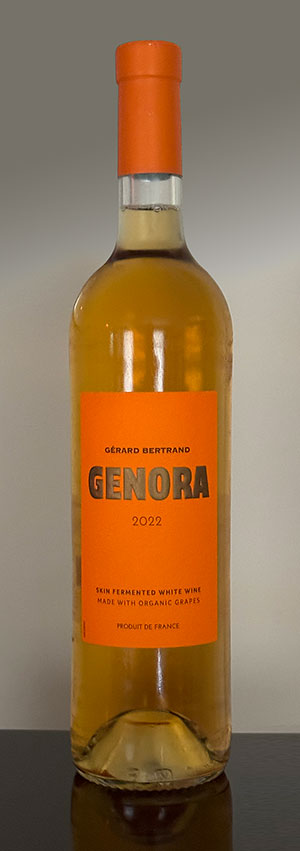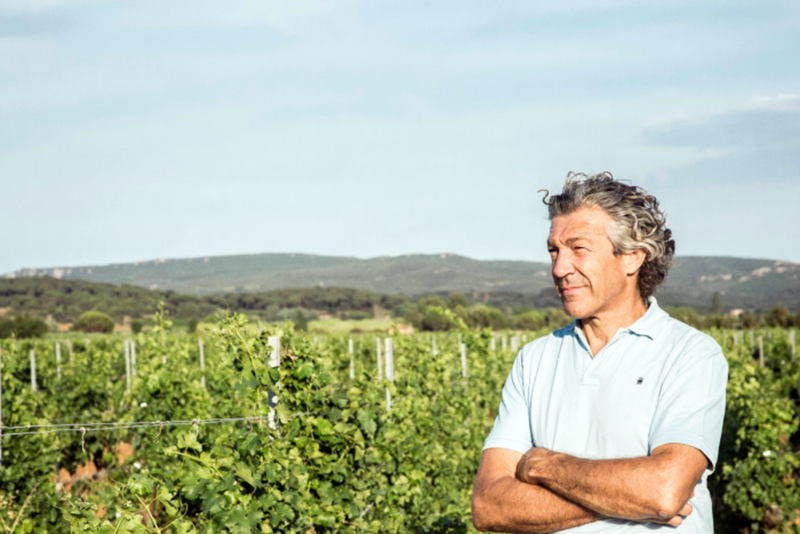
Among the picturesque vines of the Château de Villemajou, nestled in the heart of the Corbières in 1975, a young Gérard Bertrand harvested his first grapes, unknowingly embarking on a lifelong passion for wine. Under the guidance of his father, Georges Bertrand, Gérard honed his skills and absorbed the values of performance and excellence instilled in him through his years on the rugby fields of his first vocation.
Gérard Bertrand (born January 27, 1965) represented France, RC Narbonne, and the Stade Français. But before and during his rugby career, he apprenticed in his father’s vineyards for twelve years.
“In 1975, when I turned 10 years old, I discovered winemaking and my family’s estate for the first time. I really fell in love with this part of my father’s business. Even though I didn’t know it was going to be my journey in life, I really enjoyed it. My father taught me, coached me. And every summer, I spent 45 days taking care of the vineyard with my sister, then two weeks working on the cellar,” ” he reminisced.
Tragically, in 1987, fate ihttp://taste#ntervened as Gérard’s father passed away in an accident, thrusting him into the role of stewardship over the family estate, Domaine de Villemajou. Undeterred by adversity, Gérard forged ahead, founding the Gérard Bertrand wine company in 1992, with a vision to showcase the wines of the South of France. With a dedication reminiscent of his sporting days, he set out on a mission to unearth the finest terroirs of his region.
Over the years, Gérard’s ambition led him to acquire esteemed estates such as Domaine de Cigalus and Château Laville Bertrou, expanding his reach and influence within the Languedoc-Roussillon region. The pinnacle of his acquisitions came in 2002 with Château l’Hospitalet, situated amid the breathtaking landscape between Narbonne, the ancient Roman city, and the Mediterranean Sea.
Reflecting on his journey, Gérard Bertrand draws parallels between his experiences in rugby and winemaking, emphasizing the importance of determination, leadership, and teamwork. The lessons learned on the rugby field continue to shape his approach to business, guiding him towards achieving his goals.

Gérard remains attuned to the rhythms of nature, embracing biodynamic farming practices across all his vineyards. With a firm belief in the inherent wisdom of the natural world, Gérard champions biodynamics as the key to unlocking the full potential of the land, yielding wines that are a true reflection of their origin. “Biodynamic is a way of life once you understand that nature is more intelligent and stronger than us,” Bertrand says. All of Bertrand’s estates are fully biodynamic and certified, but it does source some grapes from other vineyards. Approximately 50 percent of all wine sold by the company is certified organic and biodynamic – but Bertrand doesn’t plan for it to stay this way. “In 2025, we will move up to 80 percent organic and biodynamic and, in 2030, we will be 100 percent,” he explained. He is already one of the the largest producers of biodynamic wines in the world. Ask him why go to all the trouble (biodynamics involves an intricate interplay of preparations, processes, and timing), and he makes it clear that it’s more than just the right thing to do for the planet, “I am deeply convinced that a viticulture in respect of nature and biodiversity reveals all the subtlety and taste of the soil.” In other words, the purest expression of terroir.
From his humble beginnings in the vineyards of Corbières to the pinnacle of the wine industry, Gérard Bertrand’s life is a testament to the transformative power of passion, perseverance, and a profound respect for nature. As he continues to chart new territories and redefine the standards of excellence, Gérard Bertrand remains a beacon of inspiration for wine enthusiasts and entrepreneurs alike, proving that with dedication and vision, anything is possible. Looking towards the future, Bertrand envisions a wine industry characterized by premium quality and a celebration of diversity.
Genora Skin Fermented White Wine 2022
Just as a rosé is made by letting fermenting red wine sit on the skins for a brief, rather than extended, time (even red wine grape juice is clear), an orange wine, like this one, rests on the skins and stems of the white wine grapes for a period of time. (The first orange wines were created 4500 years ago in Georgia. Everything old is new again.)
This wine is a blend of 40% Chardonnay, 30% Grenache Blanc, 25% Viognier, 10% Muscat, and 5% Gewurztraminer. The first thing you notice is: it’s orange! Still a rare sight on the wine shelf. There is a light suggestion of oranges on the nose, which is otherwise quite subtle. The palate features a bit more orange, plus grapefruit and just the right amount of acidity. In the Old World style, the fruit is recessive. The wine is quite dry, and ends in a fairly short finish.
Top of page: https://winervana.com/blog/
